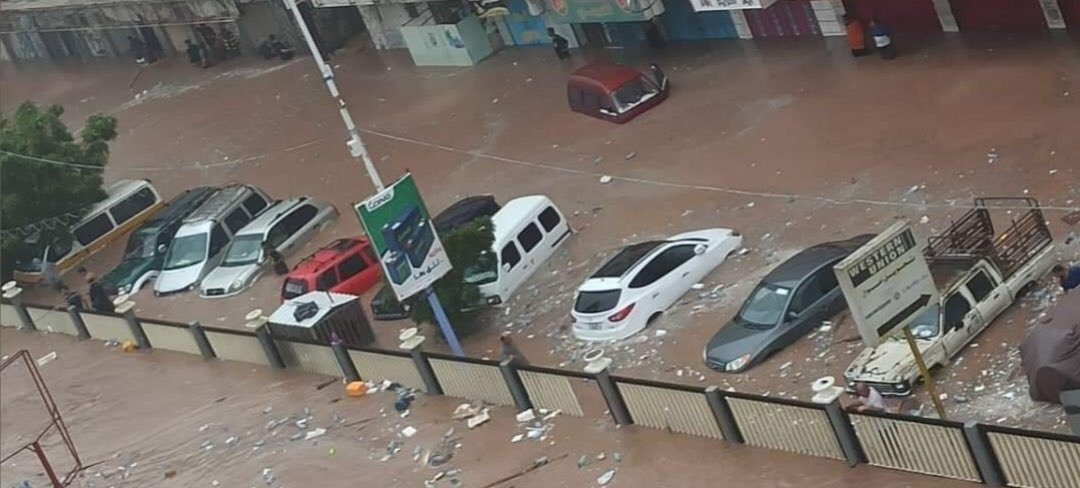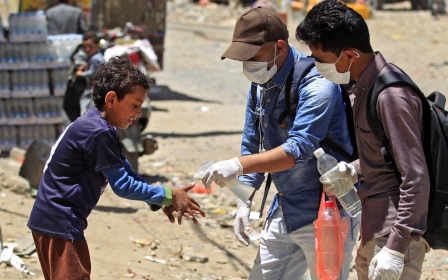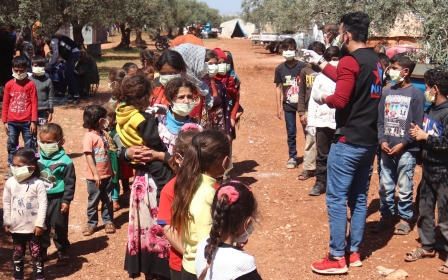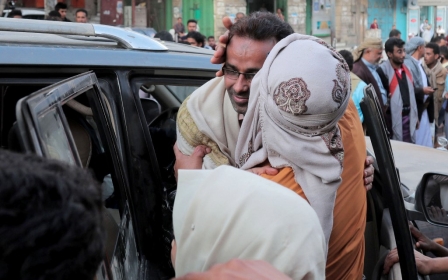Yemen declares Aden a 'disaster area' after flash floods kill eight

Yemen's government declared the southern port city of Aden a "disaster area" after flash floods caused by heavy rains killed eight people.
Prime Minister Maeen Abdulmalik Saeed called on neighbouring countries to provide emergency support to Yemen's temporary capital on Tuesday after security officials said eight people had died, including four children, due to the severe downpours.
"Aden is a disaster area. We call on brotherly and friendly countries and relief organisations to extend a helping hand and help the government face this crisis and contain its devastating effects," Saeed said on Twitter.
Videos posted on social media showed locals trying to save people swept away by the floods or youth helping the elderly trapped in their homes.
Meanwhile, local media reported that the city suffered a water and electricity power outage, with services not resumed.
New MEE newsletter: Jerusalem Dispatch
Sign up to get the latest insights and analysis on Israel-Palestine, alongside Turkey Unpacked and other MEE newsletters
Flash floods earlier this month killed at least seven people and injured 85 others in the north of the country.
The Houthi-held capital Sanaa and districts in the same governorate had been "badly affected," the UN Office for the Coordination of Humanitarian Affairs (OCHA) said on Tuesday.
Yemen has endured one of the world's largest cholera outbreaks in recent memory and health officials have dreaded the onset of the coronavirus.
The country announced its first Covid-19 case on 10 April, and humanitarian organisations have warned that the country's health infrastructure - all but collapsed since a conflict between the government and Houthi rebels broke out in 2014 - is not equipped to handle the pandemic.
Repeated bombings and ground fighting over nearly six years of war have destroyed or closed more than half its health facilities.
The US also decided to cut aid to Yemen last month, adding to the country's woes.
The UN's relief coordinator said last week that 31 of its 41 programmes in the country will be forced to close down if it does not receive additional funding.
Eighty percent of health services provided by the UN aid response to the coronavirus may stop by the end of April.
Middle East Eye delivers independent and unrivalled coverage and analysis of the Middle East, North Africa and beyond. To learn more about republishing this content and the associated fees, please fill out this form. More about MEE can be found here.




